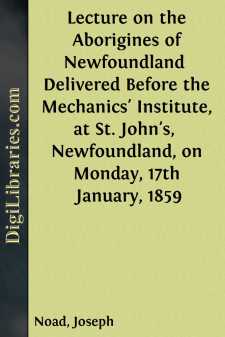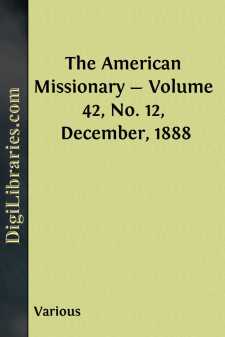Categories
- Antiques & Collectibles 13
- Architecture 36
- Art 48
- Bibles 22
- Biography & Autobiography 813
- Body, Mind & Spirit 142
- Business & Economics 28
- Children's Books 17
- Children's Fiction 14
- Computers 4
- Cooking 94
- Crafts & Hobbies 4
- Drama 346
- Education 46
- Family & Relationships 57
- Fiction 11829
- Games 19
- Gardening 17
- Health & Fitness 34
- History 1377
- House & Home 1
- Humor 147
- Juvenile Fiction 1873
- Juvenile Nonfiction 202
- Language Arts & Disciplines 88
- Law 16
- Literary Collections 686
- Literary Criticism 179
- Mathematics 13
- Medical 41
- Music 40
- Nature 179
- Non-Classifiable 1768
- Performing Arts 7
- Periodicals 1453
- Philosophy 64
- Photography 2
- Poetry 896
- Political Science 203
- Psychology 42
- Reference 154
- Religion 513
- Science 126
- Self-Help 84
- Social Science 81
- Sports & Recreation 34
- Study Aids 3
- Technology & Engineering 59
- Transportation 23
- Travel 463
- True Crime 29
Sort by:
by:
George MacDonald
CHAPTER 1 Curdie was the son of Peter the miner. He lived with his father and mother in a cottage built on a mountain, and he worked with his father inside the mountain. A mountain is a strange and awful thing. In old times, without knowing so much of their strangeness and awfulness as we do, people were yet more afraid of mountains. But then somehow they had not come to see how beautiful they are as...
more...
CHAPTER I. Say, ye oppressed by some fantastic woes, Some jarring nerve that baffles your repose, Who press the downy couch while slaves advance With timid eye to read the distant glance, Who with sad prayers the weary doctor tease To name the nameless, ever-new disease, Who with mock patience dire complaints endure, Which real pain and that alone can cure, How would you bear in real pain to lie...
more...
by:
George Eliot
How Lisa loved the King. Six hundred years ago, in Dante’s time,Before his cheek was furrowed by deep rhyme;When Europe, fed afresh from Eastern story,Was like a garden tangled with the gloryOf flowers hand-planted and of flowers air-sown,Climbing and trailing, budding and full-blown,Where purple bells are tossed amid pink stars,And springing blades, green troops in innocent wars,Crowd every shady...
more...
by:
Joseph Noad
Of the various theories advanced on the origin of the North American Indians, none has been so entirely satisfactory as to command a general assent; and on this point many and different opinions are yet held. The late De Witt Clinton, Governor of the State of New York, a man who had given no slight consideration to subjects of this nature, maintained that they were of Tatar origin; others have thought...
more...
by:
Hulbert Footner
CHAPTER I. JUNE FEVER. The firm of Minot & Doane sat on the doorsill of its store on LakeMiwasa smoking its after-supper pipes. It was seven o'clock of a brilliant day in June. The westering sun shone comfortably on the world, and a soft breeze kept the mosquitoes at bay. Moreover, the tobacco was of the best the store afforded; yet there was no peace between the two. They bickered like...
more...
by:
Various
COMMUNICATIONS Relating to the work of the Association may be addressed to the Corresponding Secretaries; letters for "THE AMERICAN MISSIONARY," to the Editor, at the New York Office. DONATIONS AND SUBSCRIPTIONS In drafts, checks, registered letters, or post-office orders, may be sent to H.W. Hubbard, Treasurer, 56 Reade Street, New York, or, when more convenient, to either of the Branch...
more...
José Maria Jacobo Rafael Ramon Francisco Gabriel del Corazon de Jesus Gordon y Prendergast—to give the writer of this book the full name with which he was christened in Jeréz de la Frontera on March 19, 1856—belongs to an interesting, but unusual, type of the Scot abroad. These virile venturers group themselves into four categories. Illustrating them by reference to the Gordons alone, there was...
more...
EDMOND ABOUT The King of the MountainsEdmond About was the son of a grocer at Dieuze, in Lorraine, France, where he was born Feb. 14, 1828. Even in childhood he displayed the vivacity of mind and the irreverent spirit which were to make him the most entertaining anti-clerical writer of his period. His tales have the qualities of the best writing of the eighteenth century, enhanced by the modern...
more...
by:
Andrew Lang
Preface The children who read fairy books, or have fairy books read to them, do not read prefaces, and the parents, aunts, uncles, and cousins, who give fairy books to their daughters, nieces, and cousins, leave prefaces unread. For whom, then, are prefaces written? When an author publishes a book 'out of his own head,' he writes the preface for his own pleasure. After reading over his book...
more...
"You don't think it's too young for me, girls?" "Young for you—par exemple! I should say not," her niece replied, perking the quivering aigrette still more obliquely upon her aunt's head. Carolyn used par exemple as a good cook uses onion—a hint of it in everything. There were those who said that she interpolated it in the Litany; but Carolyn, who was born Caroline...
more...











